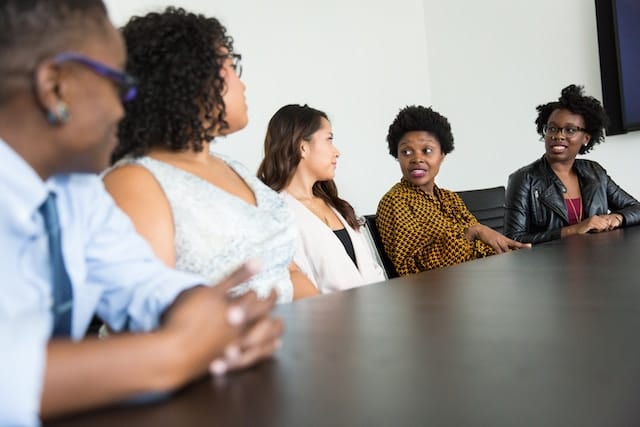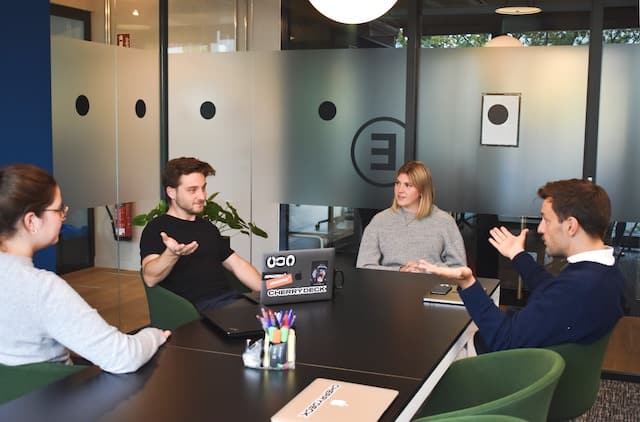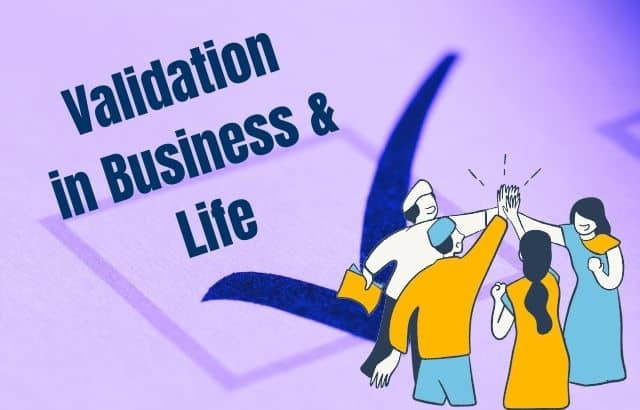Validation is a crucial aspect of human interaction that can have a significant impact on our success and well-being.
Whether in business or personal relationships, seeking validation can help us feel heard, understood, and valued.
In this, we’ll explore the importance of validation and provide tips on how to seek it out in your daily life.
Table of Contents
What is validation and why is it important?

- Validation is the act of acknowledging and accepting someone’s thoughts, feelings, and experiences as valid and important.
- It is important because it helps us feel heard and understood, which can boost our self-esteem and confidence.
- In business, validation can help build trust and strengthen relationships with clients and colleagues.
- In personal relationships, validation can improve communication and deepen connections.
- Without validation, we may feel ignored, dismissed, or unimportant, which can lead to feelings of frustration, anger, or sadness.
The benefits of seeking validation in business and life.

- Seeking validation in both business and life can have numerous benefits. In business, seeking validation from clients and colleagues can help build trust and strengthen relationships.
- It can also lead to increased confidence and motivation, as well as improved communication and problem-solving skills.
- In personal relationships, seeking validation can deepen connections and improve communication, leading to greater intimacy and understanding.
- Overall, seeking validation can help us feel heard and understood, which can lead to greater happiness and fulfillment in both our personal and professional lives.
How to seek validation from others.

- Seeking validation from others can be a powerful tool for personal and professional growth. To seek validation, start by identifying the people whose opinions matter most to you.
These may be colleagues, mentors, friends, or family members. Once you have identified these individuals, seek out their feedback and opinions on your work or ideas.
Be open to constructive criticism and use it as an opportunity to learn and grow.
Additionally, be sure to express gratitude and appreciation for the validation you receive, as this can help strengthen relationships and build trust.
Remember, seeking validation is not about seeking approval or validation from everyone, but rather seeking feedback and support from those who matter most to you.
The importance of self-validation.

- While seeking validation from others can be helpful, it’s also important to learn how to validate yourself.
- Self-validation involves recognizing and accepting your own thoughts, feelings, and experiences without seeking external validation or approval.
- This can help build self-confidence and resilience, and can also help you make decisions that align with your values and goals.
To practice self-validation, try to identify and challenge any negative self-talk or self-doubt, and focus on your strengths and accomplishments. - Remember, you are the only person who truly knows your own experiences and feelings, so learning to validate yourself can be a powerful tool for personal growth and success.
The dangers of seeking validation from the wrong sources.

- Seeking validation from the wrong sources can be dangerous and detrimental to your well-being.
- Relying solely on external validation from others, such as social media likes or comments, can lead to a constant need for approval and a lack of self-confidence.
- Additionally, seeking validation from toxic or negative individuals can lead to feelings of inadequacy and self-doubt.
- It’s important to seek validation from sources that align with your values and goals, such as trusted friends, family members, or mentors who provide constructive feedback and support.
- Remember, validation should come from a place of genuine care and concern, not from a desire to please others or fit in with societal norms.










